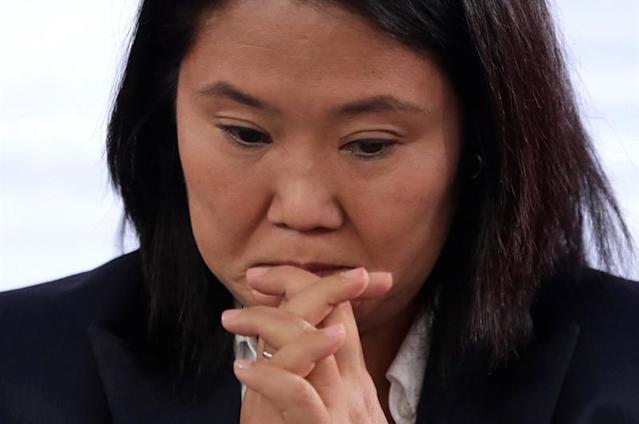RIO DE JANEIRO, BRAZIL – Peru entered a decisive week to learn its new president-elect, in the middle of the political and legal battle between leftist Pedro Castillo and rightist Keiko Fujimori, who decided to request an audit to the electoral body and to file an injunction lawsuit.
Although the vote count is 0.049% away from being concluded, the whole country’s attention is now focused on the legal appeals filed by Fujimori’s party and the efforts of the authorities to control the attacks against her opponents in the social networks.

With 99.951% of the national tally, Castillo has reached 50.13% of the vote, with a difference of 48,220 votes against Fujimori, who gathered 49.86%.
However, the last tool chosen by Fujimori before recognizing defeat was a computer audit of the digitalization of the electoral records requested to the National Office of Electoral Processes (ONPE), which could further extend the tallying of the vote in Peru.
AUDIT OF THE ELECTORAL BODY
The legal representative of Fuerza Popular, Milagros Takayama, argued in the request that “a series of questionings between validated minutes and the ONPE system have been detected through social networks”.
The audit was requested after most of the more than 800 appeals to annul 200,000 votes for alleged irregularities have been rejected by the electoral juries for arriving after the deadline and for not presenting consistent evidence that there was fraud in the voting tables.
They ask the head of the ONPE, Piero Corvetto, to clarify if it has a quality control manual for the digitalization of the minutes, the quality control policy for this process, and if the control of documents has a documented procedure.
Read also: Peru elections – Keiko Fujimori, in spite of everything, is the model for saving the “model”
Likewise, they demand to know if the identification, protection, storage, recovery, and disposition of the records are protected by an adequate methodology and if the records of the first and second presidential rounds have backup copies.
INJUNCTION AGAINST THE ELECTORAL JURY
In addition, a suit calling for an injunction was filed in court against the National Jury of Elections (JNE), the highest electoral body in Peru.
The lawsuit was filed by Carlos Antonio Franco Pacheco before the Fifth Constitutional Court of Lima after the JNE refused to extend the deadline for Fuerza Popular to file all the requests for the nullity of polling stations.
This Monday, the JNE evaluated the appeal files of ten observed acts of the presidential runoff in five regions of the country and will pronounce its decision in the next few days.
On the other hand, the civil association Transparencia, which watches over the correct functioning of institutions and democracy, “strongly condemned any attempt to move away from the democratic and institutional channel” in Peru.
CAMPAIGN HARASSMENT
“We also deplore the harassment that electoral authorities are receiving for the exercise of their work, as well as other citizens, due to their political positions,” it added in allusion to the demonstrations, sit-ins, and viral campaigns of the last few days.
The campaign “Chapa tu caviar” (Peruvian political slang meaning catch the opponent of Fujimori or the right-wing forces) has spread in social networks that support the right-wing candidate after the June 6 runoff, which shows the leftist Pedro Castillo as leader of the vote.
Its promoters, not yet identified, spread on social networks posters with photographs of intellectuals, artists, politicians, journalists, and jurists who accuse of “ruining the lives of all Peruvians”.
PROSECUTOR’S OFFICE AND GOVERNMENT INVESTIGATE
Given this situation, the Public Prosecutor’s Office has opened an investigation for the alleged commission of crimes against life, body, and health – felonies or misdemeanors specified in the Peruvian Penal Code.
In this regard, the Ombudsman’s Office expressed its condemnation of “any campaign of harassment of citizens in social networks” and after emphasizing that “hate speech is unacceptable,” demanded the Prosecutor’s Office and the National Police to “take action on the matter”.
On behalf of the Government, the Minister of the Interior, José Elice, declared that “from the Ministry of the Interior and the National Police we have intensified the Intelligence work and the monitoring of each of these cases.”
Elice said that “those responsible will have to be found” because “these things cannot happen either, no one can be threatened in the way they have allegedly been threatened, according to what we have seen in the social networks.”

